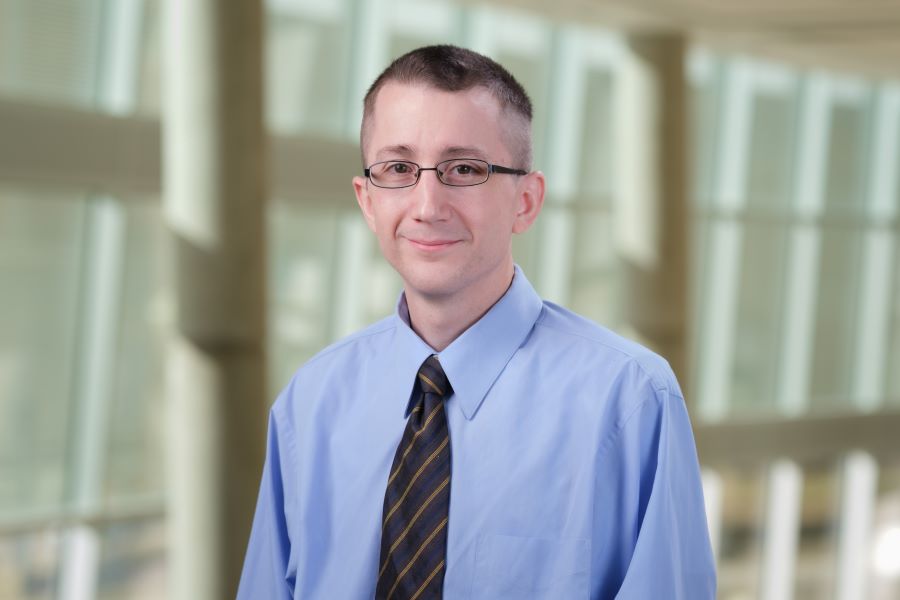Stephen V. Gliske, PhD
Associate Professor, UNMC Department of Neurosurgery
Neurosurgery Director, MEG Center, Nebraska Medicine

Dr. Stephen Gliske is an associate professor of neurosurgery at the University of Nebraska Medical Center. His work spans computational and translational neuroscience, applied data science, biomedical engineering and computational physics. Dr. Gliske has a PhD in physics from the University of Michigan and completed a fellowship at Argonne National Laboratory, working in the area of medium/high energy nuclear physics, with a focus on theory and big data analysis. Upon switching applications to neuroscience, he received additional training via a fellowship in the University of Michigan, Department of Neurology. He later joining the faculty there, working within the Comprehensive Epilepsy Program and Sleep Disorders Center. Dr. Gliske was also one of the few recipients of the NIH Big Data to Knowledge Mentored Training Grant (K01), which provided additional research support and training in epilepsy, sleep medicine, brain anatomy/physiology, and other relevant aspects of neuroscience and clinical applications.
- MS: Physics, University of Michigan, Ann Arbor, Michigan
- PhD: Physics, University of Michigan, Ann Arbor, Michigan
Dr. Gliske’s current research centers on obtaining greater knowledge from brain monitoring data, including intracranial and scalp EEG, MEG, microelectrode recordings, and sleep studies. Dr. Gliske has contributed to over 50 research publications, including over 10 as a lead or senior author.
Dr. Gliske's research team uses the most advanced data science tools to localize functional and pathological areas within the brain and analyze how sleep impacts electrical biomarkers of function and disease. Major projects include identifying tissue and networks associated with seizures and eloquent cortex, sleep in neonates, and understanding the relationship between sleep and DBS in patients with Parkinson's Disease. Our main modalities are MEG and EEG (both invasive and non-invasive). Our group models a team science approach integrating data science, math, physics, engineering, neuroscience, neuroanatomy and physiology, and functional neurosurgery.